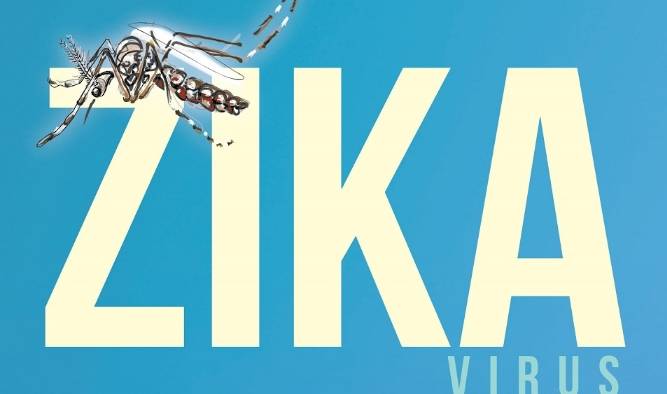Health officials in St. Vincent and the Grenadines on Wednesday disclosed more information about the persons who tested positive or the mosquito-borne illness, Zia.
Minister Heath, Sen. Luke Browne, told Parliament on Tuesday that his Ministry had received that evening confirmation from the Caribbean Public Health Agency (CARPHA) in Trinidad that a sample sent from St. Vincent and the Grenadines had tested positive for Zika.
Epidemiologist in the Ministry of Health, Dr. Rosmond Adams, said a 34-year-old female of Union Island reported fever, headache, chills, cough, weakness to the lower limbs and vomiting earlier in February.
The onset of these signs and symptoms, he said, began on Feb. 15, and the patient was seen by the district medical officer on Feb. 16.
The temperature was noted to be 104.5 degrees Fahrenheit and the patient was hospitalised for two days and discharged on Feb. 18, and has since recovered.
Neither patient nor any other occupant of the house has a history of recent travel, Adams said.
He said transmission is, therefore, likely to be autochthonous (indigenous).
Adams further said that following the identification of Zika in Brazil in May 2015, the Ministry of Health embarked on a public education drive to promote knowledge awareness about the disease and its transmission, with particular emphasis on the environmental measures of source reduction as the key to combat the spread of the disease.
He said that clinical personnel have been sensitised to identify and appropriately manage the disease.
Chief Medical Officer, Dr. Simone Keizer-Beache, responding to the first confirmed Zika case in SVG urged residents not to panic but to work even more closely with the Ministry in the various activities to clean up SVG and fight the mosquito, which is the source of the problem.
She reiterated that the most important measure is the reduction of the source, vector control and urged residents to take measures to protect themselves from being bitten by mosquitos.
Keizer-Beache said that her ministry has taken and will continue to take the necessary steps to minimise the probability of a major outbreak.
These measures include household inspections, fogging, educational initiatives in schools, churches and, among others, communities.
A major national clean up campaign has started in Bequia, Keizer-Beache said.
This clean up activity in Bequia is being led by Action Bequia, in collaboration with the Ministry of Health and other stakeholders.
Other subsequent clean up activities will continue simultaneously across SVG.
And, Permanent Secretary in the Ministry of Health, Luis de Shong, said that the Insect Vector Control Unit has scaled up environmental surveillance and mosquito eradication programmes in communities, especially those with high indices.
He said the Zika Action Committee, which is chaired by the Minister of Health, has activated the response component of the Zika Action Plan.
Local transmission of the Zika virus has also been confirmed in many neighbouring Caribbean islands, the Ministry said.
Some 20 countries and territories have confirmed the circulation of Zika virus in the Americas from Jan. 22, including Barbados, Brazil, Colombia, Haiti, St. Martin and Trinidad and Tobago.
Because the aedes aegypti mosquito, which transports the virus, is found throughout the region, the Pan American Health Organisation has indicated that it is likely that there will be outbreaks in other countries that have not yet reported cases.
Zika symptoms include fever, headache, skin rash, red eyes and muscle ache.
The Ministry said it will continue to receive support from CARPHA, which will facilitate the testing of samples for the confirmation of the virus.
The Ministry said it continues to partner with other governmental agencies, the private sector and the wider population to promote source reduction, and will continue to monitor the situation and will keep the nation apprised of all information as it unfolds.






